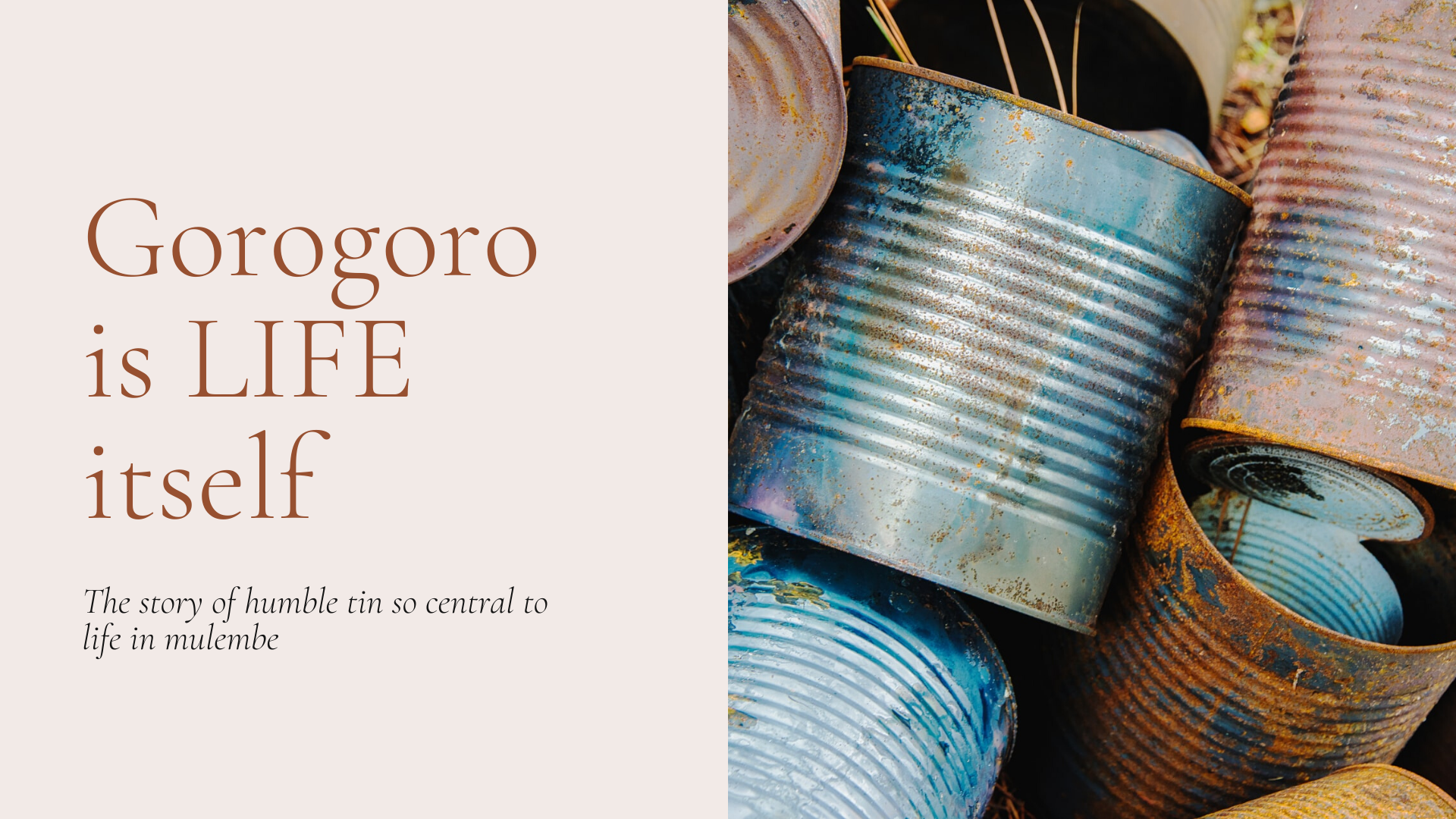In most Western Kenya food markets, dry cereals such as beans and maize are sold in gorogoros. When you buy a gorogoro of anything, it is taken that you have acquired two kilograms of the said commodity. But the importance of ekorokoro goes beyond trade. Gorogoro is life itself!
What is gorogoro?
Whenever I find chance to go to the market to buy dry cereals, I always get the prices listed in terms of gorogoro or korokoro. I used to think that gorogoro is universal, until my cousin Ikine lamented that, gorogoro is alien in Ukambani where he’s gone searching for mgorogoro.
Anyway, ekorokoro as my people the Bukusu refer to it, is a measure of food. My mulamwas the Maragoli pronounce it as mgorogoro especially when referring to this measure of food in its expanded meaning. Generally speaking, gorogoro is any two kilogram tin.
But it is not a standardized measure but rather a generally accepted measure. Thus, the tin used as gorogoro varies from market to market; location to location; age to age. For example, the gorogoro that my grandmother Nakhatama used when she was a girl is different from that my mother used. Futher, the gorogoro in Maragoli is different from the one in bukusuland.
This difference arises because the tin used as gorogoro is often recycled from what is readily available. Sometimes they are old cooking fat tins, other times they maybe old seed tins etc.
Origins of gorogoro
According to kukhu Nakhatama, the first time she remembers wide spred use of korokoro may have been during a difficult time of severe famine. Nakhatama remembers this period of her life with a lot of pain in her heart. She says she was a young mother to three boys all under 5 years when the famine struck. Her frail memory places this time as somewhere in the 50’s.
It so bad that whole communities had to be fed by the colonial government. Food rations were handed out depending on the number of people in a household. And the korokoro was the standard ration used to distribute the food. Each household was given one korokoro for every mouth per week.
The colonial government had additionally set up food distribution centers and therapeutic feeding centers for the moderate and severely malnourished children. She remembers that her two youngest sons were required to be taken to the feeding center daily.
At the center, they were given some liquid to drink. She recalls making trips to the therapeutic center which was approximately 5 kilometers away for three months. Despite her best efforts, she still lost the youngest son to malnutrition. In all, she is grateful to God for sparing the life of her other son.
Gorogoro: More than just a tin exploring its other meanings
To this day, korokoro is still a term used when someone is asking for help. A relative back in the village in asking for financial support, asks his/her to get relation to allievate their suffering as they didn’t even have gorogoro.
The use of the term gorogoro creates a mental picture such that his relation immediately gets how vulnerable he and his family are. It might still be early, but in these uncertain times of coronavirus, I can attest that the requests for gorogoro have already gone up. Wele remember us.
Mgorogoro as a synonym for gainful work or employment
Korokoro is also a way of expressing ones need for empowerment. I imagine a scenario where an senje calls her senje asking them to help one of her sons. The son could be trained with a diploma or even a degree but could be wallowing in poverty back in the village.
Those of us from Mulembe will get such a call at least once a week. Your senje will be asking you to help your cousin to help get a job. Any job. Anything to do so that (s)he can earn something to buy his family korokoro. Her precise words will be that you help your cousin get mgorogoro. It is after such a call that through a friend of a friend, my cousin Ikine ended up in Ukambani.
Gorogoro the measure of the products of kamakhalange
When my people want to have a good time, they do so in style. Roast pig, tribal and contemporary tunes from litungu and traditional beer. Our traditional drink made from fermented and fried grain flour, kamalwa kamakhalanje, is served in two kilogram tins: korokoro. The last time I was at a den, one korokoro of busaa was going for a cool Ksh 100.
A measure of the man
Or the fight in the dog. In contemporary Luhya speak you are likely to come across the phrase: anajaza gorogoro? This is a contemporary Luhya saying that combines Swahili (anejaza, meaning does he/she fit or fill) and Kiluhya (gorogoro).
It is a saying that is used to judge the worth of an individual in any exploit. For instance, a woman or lad, who ‘anajaza gorogoro’ is considered a worthy date or exploit. A member of the ‘most eligible’ club. In politics, it is often used to denote that a candidate has the popularity, organizational skills, connections, charisma and finances to launch a formidable campaign. This saying can also be used dismissively when said in the negative, hajazi gorogoro, to look down upon someone.

